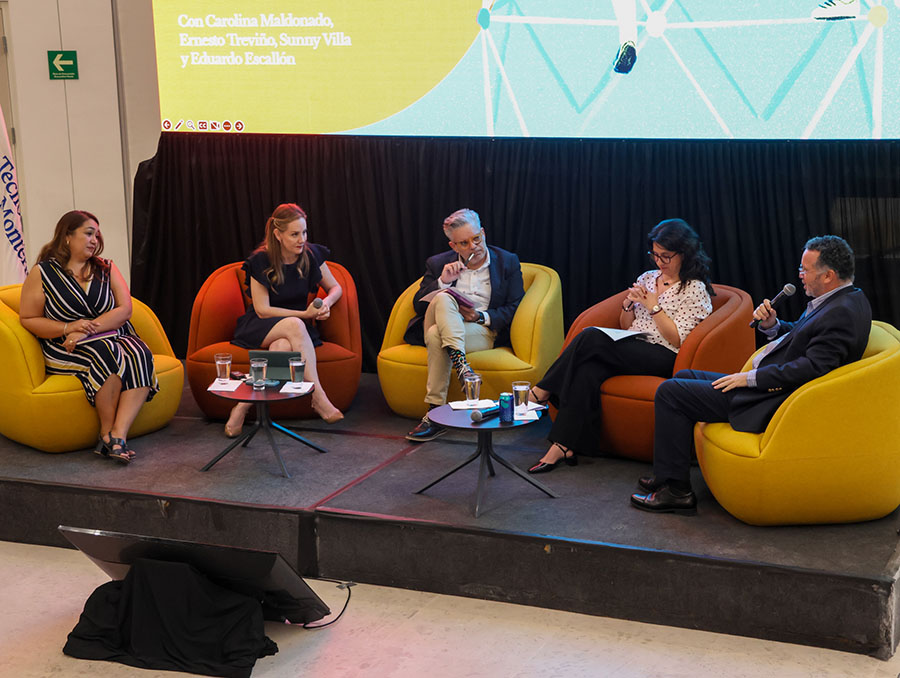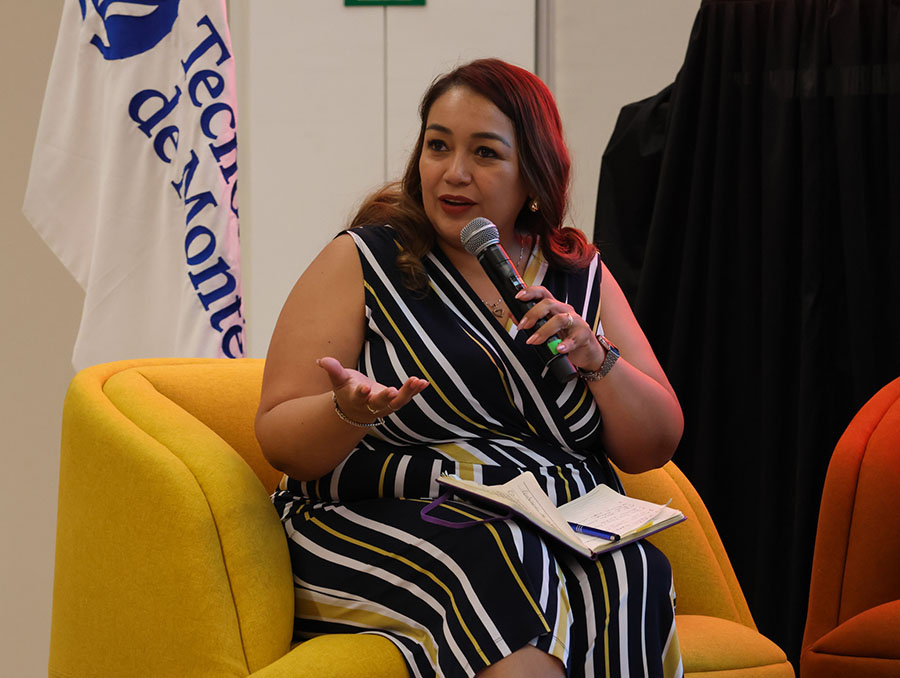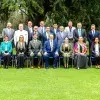To develop policies that benefit early childhood, you have to put yourself in a child’s place to review his or her environment, physical or emotional health, social relationships, and learning.
This was the consensus of the Leaders for Early Childhood Policies: A Systemic View panel, which included professors and researchers from La Tríada.
Their discussion explored the need to train leaders with strategic vision and cross-sectoral skills to design and implement public policies that promote the integral development of infants in Mexico and Latin America.
“La Tríada” is an alliance between Tec de Monterrey, the Pontifical Catholic University of Chile, and the University of Los Andes focused on collaboration to address challenges and opportunities in technology, business, and education.
This talk was held on April 3rd in the auditorium of the EXPEDITION FEMSA building on Monterrey campus.

“We have a significant gap in Latin America with a severe lack of programs to train leaders in early childhood issues,” said Adriana Gidi, Associate Director of the Tec’s Center for Early Childhood.
“We need people to be aware of the importance of this stage of life and how to develop policies so that they have an effective impact on the environment in which our children grow up,” she added.
The panel consisted of:
- Sunny Villa, Professor of Economics at the School of Social Sciences and Government (Tec).
- Carolina Maldonado, Ernesto Treviño, and Eduardo Escallón, Co-Directors of the Early Childhood Education Research Group (Uniandes).
Three challenges to implementing public policy in Latin America
Professor Sunny Villa shared three challenges to implementing public policies on early childhood in Latin America.
She explained that education, health, social protection, and other sectors must work together to achieve comprehensive early childhood care.
- Structural challenges: “Recognizing how society is formed, its culture, the space, and how childhood is understood in the environment.”
- Institutional challenges: “Although we have numerous institutions that create policies for early childhood, we don’t talk to each other, or we have to ask for permission. It’s difficult to bring multiple stakeholders or institutions together. We don’t have integrated data.”
- Participation challenges: “We all have to participate; it’s not just for the benefit of children but for the development of people and countries.”
On the other hand, she said that children’s development depends largely on the territory in which they were born, which is why public policies should be developed according to place or region.
“Your place of birth largely determines your development, geography matters. Some children start with a huge disadvantage just because they live in a rural or remote area.
“There can’t be a single policy for all territories; we need approaches adapted to local realities,” she said.
“We need people to be aware of the importance of this stage of life.” - Adriana Gidi
Training leaders: Beyond public office
According to Eduardo Escallón, leaders are not just people who hold public office.
“The kind of leadership training we want to provide is not just about training political figures to hold public office. The leaders are the families, the leaders of society, and those within the government,” he said.
Therefore, each stakeholder must fulfill their role so that every child can develop cognitively and physically and reach their true potential.
“A good leader doesn’t necessarily have to be a person with charisma; they can be someone with certain knowledge and skills, which is why this program focuses on leadership training,” he added.
He said that when people talk about a systemic approach, they think it is for solving problems, but early childhood is not a problem.
“In reality, early childhood is not a problem; it is a commitment that we all have as citizens to guarantee children’s integral development,” he concluded.
Creation of the Certificate in Early Childhood Policies
Adriana Gidi said that they have already started work on the creation of a Certificate in Early Childhood Policies.
“This is being created as an innovative response to close the training gap and strengthen institutional capacity.
“A year or two ago, we were contacted through Ale Cortázar. She has this connection to Lynn Kagan, who belongs to a network of universities that created a very solid and comprehensive early childhood policy program,” she said.
Ernesto Treviño said that a certificate is a prior assessment tool which seeks to guarantee that all public policies consider and protect children in early childhood.
“Just as there is a certificate in environmental policies, a certificate in early childhood policies is a filter that determines whether the suggestions are good or bad for young children,” he said.

Equity from early childhood onwards
Carolina Maldonado pointed out that educational inequalities do not begin at school but rather in early childhood.
“If we want to close gaps, we must start from the cradle. Educational equity begins in early childhood,” she said.
She explained that physical, emotional, cognitive, and social development in the early years define the trajectory of school and life, hence the importance of considering it in early childhood.
She said that we need quality early intervention, caregivers who receive support and accompaniment, protective and stimulating environments, and policies with a redistributive focus to achieve this.
“Supporting families is as important as access to services; adult caregivers are fundamental to development.”
READ ALSO:





